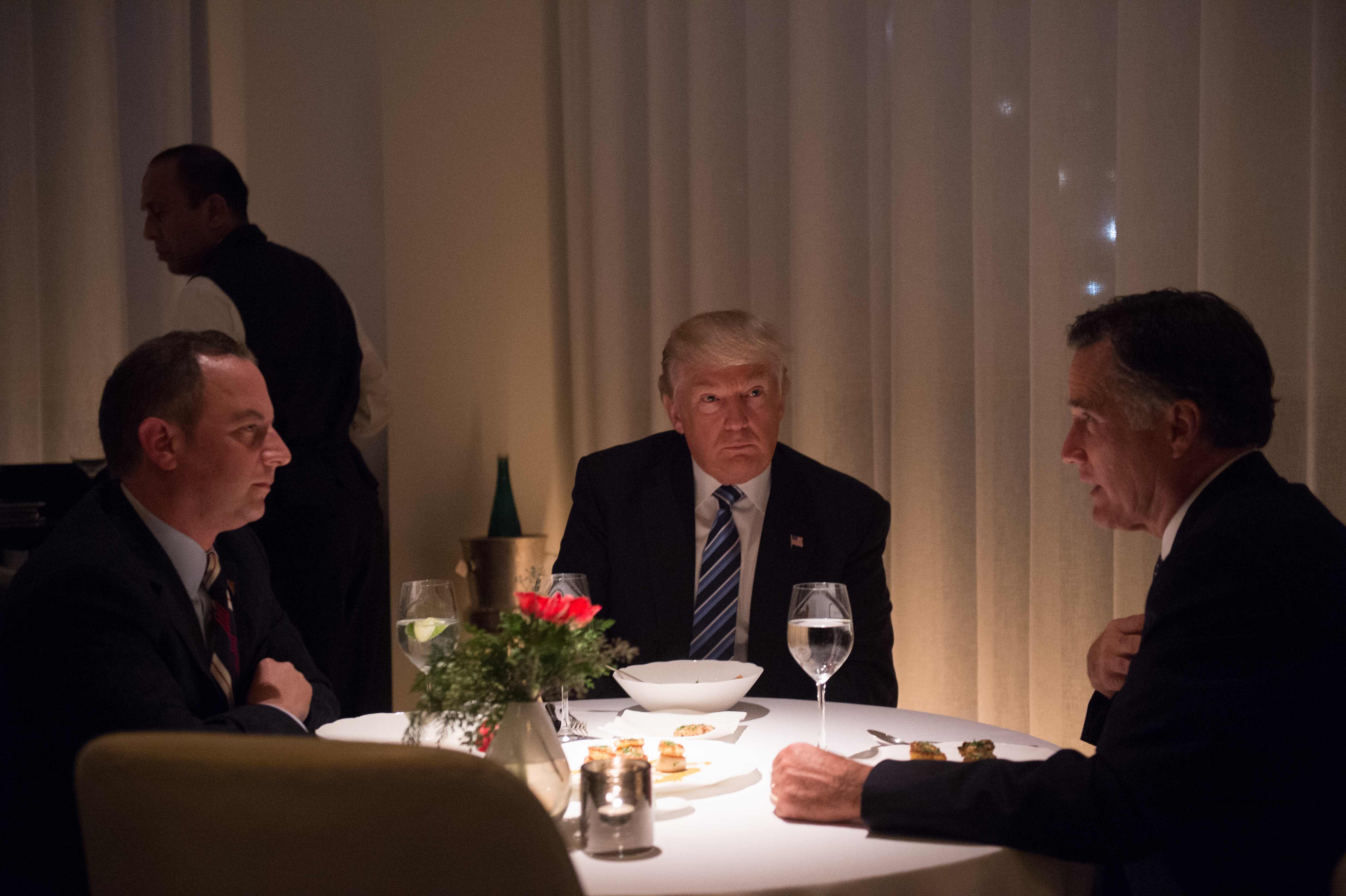Understanding Anonymity At Trump's Memecoin Fundraising Dinner

Table of Contents
The Allure of Anonymity in Cryptocurrency Donations
Cryptocurrencies like Bitcoin and others potentially used at the event operate on a decentralized, blockchain-based system. This inherent pseudonymous nature, where transactions are linked to addresses rather than directly identifiable individuals, is a double-edged sword. While offering a degree of privacy to users, it also presents significant challenges for transparency and accountability, particularly in the context of political donations.
The appeal of anonymity for donors is multifaceted. For some, it's about avoiding public scrutiny of their political contributions, shielding themselves from potential backlash or political pressure. For others, it might be a way to contribute anonymously to causes they support without fear of reprisal. However, this anonymity also carries significant risks.
- Reduced transparency compared to traditional donations: Traditional donations through banks or checks leave a clear audit trail. Cryptocurrency donations significantly reduce this transparency.
- Potential for circumventing campaign finance laws: The anonymity offered by crypto could be exploited to circumvent existing campaign finance laws designed to ensure transparency and prevent undue influence.
- Increased risk of illicit activities, money laundering, etc.: The pseudonymous nature of crypto transactions makes them susceptible to misuse for illegal activities, including money laundering and funding of illegal operations. This poses serious challenges for regulatory bodies.
The combination of "cryptocurrency donations," "political donations anonymity," and the specific context of "Trump campaign finance" and "memecoin fundraising" create a unique set of challenges that need careful consideration.
Investigating the Methods Used at the Trump Dinner
Determining the precise methods used to accept crypto donations at the Trump dinner requires further investigation. However, several possibilities exist:
- QR codes: Attendees could have scanned QR codes linked to specific cryptocurrency wallets, facilitating donations directly.
- Specific wallets: Designated wallets might have been publicized, allowing donors to send funds directly to the Trump campaign.
- Third-party platforms: A third-party platform specializing in cryptocurrency donations might have been used, potentially adding another layer of complexity to tracing the donations.
The traceability of these methods varies considerably. QR codes leading to publicly viewable wallets offer some transparency, while more complex methods involving mixers or other privacy-enhancing technologies could significantly hinder traceability.
- Analysis of any public statements or reports regarding the donation process: Any official statements released by the Trump campaign or other involved parties about the donation process are crucial for understanding the level of transparency.
- Discussion of the technological limitations of tracking crypto transactions: While blockchain technology provides a public ledger, tracing the origin of crypto funds and connecting them to specific donors can be technologically challenging, particularly with techniques designed to obfuscate transaction details.
- Mention any known efforts to enhance transparency (if any exist): If any measures were taken to enhance transparency – such as using platforms with Know Your Customer (KYC) verification – those should be mentioned and analyzed.
This analysis necessitates examining "Trump fundraising methods," "cryptocurrency transaction tracking," the role of "memecoin donation platforms," and the significant "regulatory challenges" presented by this approach.
Legal and Ethical Implications of Anonymity in Political Fundraising
Existing campaign finance laws and regulations, such as the Federal Election Campaign Act (FECA) in the US, generally require disclosure of donors' identities and contribution amounts. These regulations aim to ensure transparency and prevent undue influence in political campaigns. However, the anonymity inherent in cryptocurrency transactions directly challenges these laws.
The use of crypto for political donations raises serious concerns:
- The potential for undisclosed foreign influence: Foreign nationals could potentially circumvent existing regulations restricting their political contributions by donating anonymously through cryptocurrencies.
- The difficulty in enforcing existing regulations in the crypto space: The decentralized and global nature of cryptocurrencies makes it difficult for regulatory bodies to enforce existing laws and track illicit activities.
- The debate surrounding the need for stricter regulations for crypto political donations: The challenges posed by crypto donations have sparked a debate about whether stricter regulations are necessary to address the risks to transparency and democratic processes.
The key terms here include "campaign finance laws," "crypto regulation," the necessity of "political transparency," growing "money laundering concerns," and the potential exploitation of existing "regulatory loopholes."
The Role of Memecoins in Amplifying Anonymity
Memecoins, often characterized by high volatility and a lack of intrinsic value, add another layer of complexity to the issue of anonymity in political fundraising. Their speculative nature and often unregulated status make them particularly attractive for those seeking to conceal their donations.
- Discuss the implications of using memecoins for fundraising: The use of memecoins for fundraising amplifies the anonymity concerns associated with cryptocurrencies due to their often unregulated nature and the difficulty in tracing transactions.
- Analyze the potential for manipulation and fraud associated with memecoin donations: The volatile nature of memecoins increases the potential for manipulation and fraud, as their value can fluctuate dramatically, impacting the actual value of the donation.
- Highlight the difficulties in tracing donations made with memecoins: The often-anonymous nature of memecoin transactions makes tracing the origins of donations exceptionally challenging, potentially hindering investigations into illicit activities or violations of campaign finance laws.
This section focuses on the implications of "memecoin regulation," "memecoin volatility," the specific issue of "Trump memecoin donations," and the difficulties associated with "anonymous memecoin transactions."
Conclusion
The use of cryptocurrency, particularly memecoins, in political fundraising, as exemplified by the Trump dinner, presents significant challenges to traditional campaign finance transparency. The inherent anonymity of these digital assets creates opportunities for undisclosed donations, potentially undermining democratic processes and facilitating illicit activities. Understanding the intricacies of Trump Memecoin Anonymity is crucial for developing effective regulatory frameworks to ensure accountability and prevent misuse of cryptocurrencies in political campaigns. Further investigation and robust regulation are needed to address the legal and ethical implications of this emerging trend. Stay informed about the evolving landscape of crypto and political donations – your vigilance is key.

Featured Posts
-
 Ronan Farrow And Mia Farrow A Hollywood Comeback Story
May 24, 2025
Ronan Farrow And Mia Farrow A Hollywood Comeback Story
May 24, 2025 -
 March 26 2025 Nyt Mini Crossword Hints Clues And Answers
May 24, 2025
March 26 2025 Nyt Mini Crossword Hints Clues And Answers
May 24, 2025 -
 Dc Legends Of Tomorrow The Best Episodes And Moments
May 24, 2025
Dc Legends Of Tomorrow The Best Episodes And Moments
May 24, 2025 -
 90 Let Sergeyu Yurskomu Vospominaniya Ob Aktere Intellektuale Ostroslove
May 24, 2025
90 Let Sergeyu Yurskomu Vospominaniya Ob Aktere Intellektuale Ostroslove
May 24, 2025 -
 Global Healthcare Transformation Insights From The Philips Future Health Index 2025 On Ai
May 24, 2025
Global Healthcare Transformation Insights From The Philips Future Health Index 2025 On Ai
May 24, 2025
